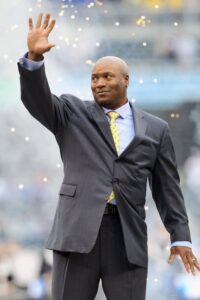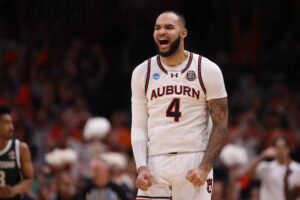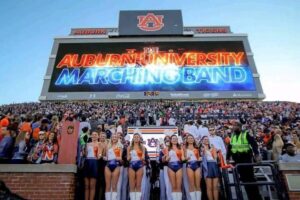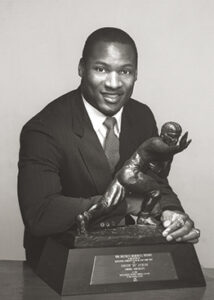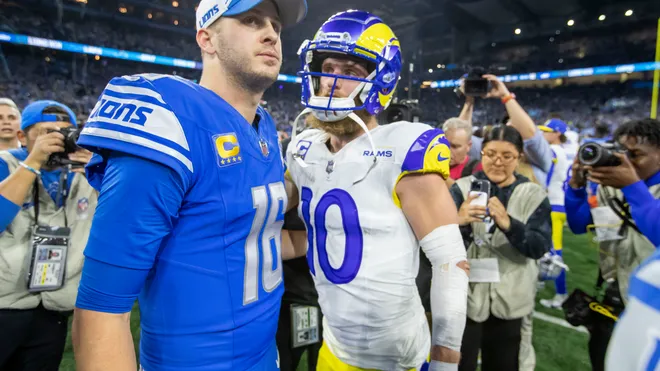
“Matthew Stafford Points Out Lions’ Missed Opportunities with Coordinators: What It Means for Detroit’s Rise”
In the world of professional football, the margin between success and mediocrity often comes down to more than just player talent — coaching can make or break a franchise. While the Detroit Lions have emerged as one of the NFL’s most exciting teams in recent years, longtime quarterback Matthew Stafford recently offered a subtle but telling observation that reopens an old conversation: how much more could the Lions have achieved during his tenure if the team hadn’t missed out on key coaching hires?
In a recent interview, Stafford hinted at frustrations from his time in Detroit, noting that the franchise “lost out on some coordinators” during his era — a remark that has sparked renewed debate about the Lions’ past decisions and the role of coaching in the NFL’s most cerebral position: quarterback.
Stafford’s Subtle Jab: A Reflection on Lost Potential
Stafford didn’t name names or throw individuals under the bus — that’s not his style — but his comments carried weight. When asked about the Lions’ recent success and stability under head coach Dan Campbell and offensive coordinator Ben Johnson, Stafford acknowledged the franchise’s growth but couldn’t help reflecting on what might’ve been.
“We had some opportunities for some guys to come in [as coordinators] back in the day and didn’t quite get them,” Stafford said. “That kind of thing makes a difference.”
That “kind of thing” may sound minor, but when it comes from a 15-year NFL veteran with over 52,000 career passing yards and a Super Bowl ring, it signals more than just nostalgia. It suggests that Stafford — who endured a revolving door of head coaches and offensive systems in Detroit — believes that the Lions’ coaching instability may have limited the team’s and his own potential.
A History of Missed Opportunities
From the moment he was drafted No. 1 overall in 2009, Stafford was expected to be the face of the Lions franchise. And for over a decade, he largely was — battling through injuries, fourth-quarter deficits, and yearly changes in leadership. But Detroit’s failure to pair Stafford with elite-level coaching and stable offensive vision loomed large.
During Stafford’s 12-year run with the Lions, the team cycled through multiple head coaches and coordinators:
- Head Coaches: Jim Schwartz (2009–2013), Jim Caldwell (2014–2017), Matt Patricia (2018–2020)
- Offensive Coordinators: Scott Linehan, Joe Lombardi, Jim Bob Cooter, Darrell Bevell
While Stafford showed flashes of brilliance, his development was constantly disrupted by regime changes, playbook overhauls, and underwhelming coaching hires.
In contrast, when Stafford was traded to the Los Angeles Rams in 2021, he stepped into a ready-made system under Sean McVay — one of the NFL’s most respected offensive minds. The result? A Super Bowl title in his first season.
That stark turnaround only highlighted the gap in offensive infrastructure between the Rams and the Lions during Stafford’s Detroit years.
Who Were the Coordinators That Got Away?
Although Stafford didn’t specifically name the coordinators the Lions “lost out on,” context clues and previous reports suggest a few missed opportunities.
1. Kyle Shanahan
Back in 2014, as the Lions searched for a new offensive coordinator under Jim Caldwell, Kyle Shanahan — then recently released from Washington — was considered a strong candidate. The Lions interviewed him but ultimately chose Joe Lombardi, whose offensive scheme was criticized as overly rigid and not suited to Stafford’s strengths.
Shanahan, of course, would go on to mastermind high-powered offenses in Atlanta (helping Matt Ryan win MVP) and now in San Francisco, where he’s built a perennial contender.
2. Sean McVay
Another name that surfaced during Lions coordinator discussions over the years was Sean McVay, who was quickly rising through the ranks with the Washington Football Team. Though McVay was never officially interviewed, there was league chatter that Detroit didn’t aggressively pursue him, viewing him as too young at the time.
McVay became the youngest head coach in modern NFL history and took the Rams to two Super Bowls in five seasons — one with Stafford under center.
3. Kevin Stefanski
Before becoming the Browns’ head coach, Stefanski interviewed for multiple offensive coordinator jobs. In 2019, he was available and was viewed as a promising mind who could work well with a veteran quarterback. Instead, Detroit stayed in-house with Darrell Bevell, a veteran coordinator who never truly unlocked Stafford’s full arsenal.
4. Ben Johnson — Before the Promotion
Interestingly, Ben Johnson was on Detroit’s staff during Stafford’s final season (2020), working as the team’s tight ends coach. While he wasn’t in line for the OC role at the time, some now wonder if elevating Johnson earlier might have changed the trajectory of Stafford’s final year in Detroit.
Johnson has since become one of the league’s most sought-after offensive minds, credited with resurrecting Jared Goff’s career and building one of the most efficient, balanced offenses in the NFL.
The Coaching Carousel’s Impact on Stafford
Quarterbacks thrive in systems that are stable, quarterback-friendly, and tailored to their skillsets. Stafford, however, faced constant turnover. By the time he left Detroit, he had worked under six different offensive coordinators and three head coaches — none of whom had offensive reputations approaching McVay’s.
It’s not just about Xs and Os. Coordinators influence everything from play-calling tempo and protection schemes to red-zone creativity and route concepts. A quarterback’s success is directly tied to how well his offensive staff supports and maximizes his abilities.
Stafford’s natural arm talent and toughness kept Detroit competitive at times — including a playoff appearance in 2014 — but the lack of coaching continuity and offensive innovation repeatedly undercut long-term success.
Lions’ Rebirth: Timing Is Everything
The irony in Stafford’s comments is that just as he left Detroit, the organization began to finally turn a corner. Dan Campbell’s hire was initially met with skepticism, but his leadership style, paired with general manager Brad Holmes’ personnel decisions and Ben Johnson’s offensive acumen, have transformed Detroit into a legitimate contender.
Since 2022, the Lions have:
- Built a dominant offensive line
- Developed a dangerous run game
- Drafted explosive playmakers like Amon-Ra St. Brown and Jahmyr Gibbs
- Reinvigorated Jared Goff’s career
Goff, considered a throw-in during the Stafford trade, has since led the Lions to the NFC Championship Game and arguably outperformed expectations thanks in part to the offensive system Johnson built around his strengths.
Stafford can only wonder what might have been had he been paired with such a system during his prime.
What Stafford’s Comment Says About the NFL Today
Beyond Detroit, Stafford’s subtle critique points to a larger truth in the NFL: success hinges as much on infrastructure as it does on star power. For every Mahomes-Reid or Burrow-Taylor pairing, there are cautionary tales of talented QBs held back by disjointed staffs.
Stafford’s career embodies that dichotomy:
- In Detroit: 12 seasons, 0 playoff wins
- In Los Angeles: 1 season, Super Bowl champion
Was Stafford a dramatically different quarterback in LA? Not really. But the context was different — elite play-calling, a strong run game, innovative designs, and a top-tier defense.
Stafford’s reflection serves as a reminder that quarterback development is rarely linear — and that even elite talents can be stunted without the right coaching minds guiding them.
Detroit’s Misses May Have Delayed Their Rise
Had the Lions landed a Shanahan or McVay, perhaps their rise to contention would’ve come earlier — and perhaps Stafford would still be in Detroit. Instead, it took a total organizational reset, post-Stafford, to build the type of culture and infrastructure that fosters long-term success.
To their credit, the Lions now appear to have corrected course. Brad Holmes’ eye for talent, Campbell’s leadership, and Johnson’s scheming have made Detroit a destination team. But the cost was a decade of Stafford’s prime — years that could’ve looked much different with the right staff in place.
A Look Ahead: Can the Lions Keep Their Coaches?
Ironically, just as the Lions have gotten it right, they now face the opposite problem: keeping their coaching talent.
Ben Johnson has already turned down multiple head coaching offers to stay in Detroit — a testament to both his loyalty and belief in the team’s future. But as long as he remains one of the league’s brightest minds, other franchises will continue to call.
The Lions can’t afford to lose him without a succession plan — they’ve seen firsthand how much coordinators matter.
Stafford’s Legacy in Detroit — Complicated but Respected
Despite the missed chances and organizational dysfunction during his time, Matthew Stafford remains beloved in Detroit. His toughness, leadership, and loyalty are still appreciated by a fan base that understands he was never the problem.
Stafford’s recent comments don’t come off as bitter — they sound more like wistful honesty. He sees what the Lions have become and rightfully recognizes that better coaching during his tenure could’ve changed the trajectory for everyone involved.
And while he may not have hoisted a Lombardi Trophy in Detroit, his success in LA — and his reflections now — only reinforce his value and what the Lions may have left on the table.
Matthew Stafford’s pointed remark about the Lions missing out on coordinators serves as more than just a retrospective. It’s a window into how vital coaching continuity and offensive vision are in shaping a franchise’s destiny — and a reminder that even elite talents can be muted by systemic instability.
For Detroit, it’s a painful “what if.” But for the current Lions, it’s a call to never take the coaching foundation they’ve built for granted. Because in the NFL, the difference between a contender and an also-ran is often found not just under center — but on the sidelines.

